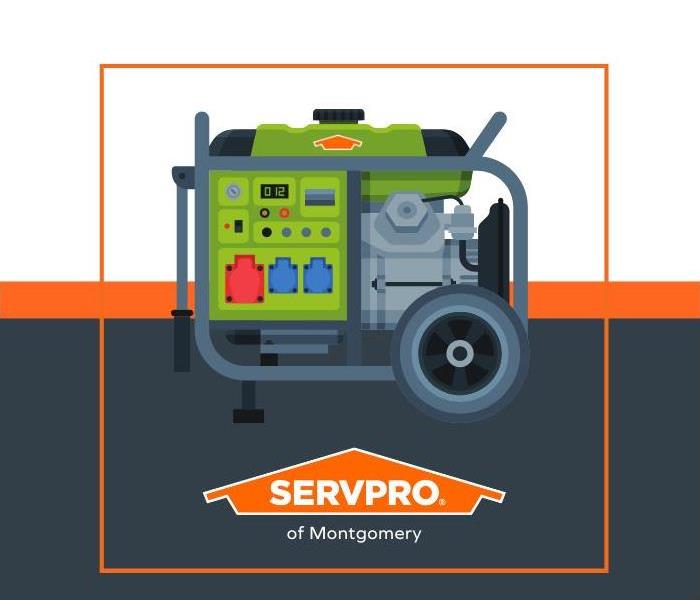Essential Safety Tips for Using Portable Generators in Montgomery, AL
5/30/2024 (Permalink)
When a severe storm hits Montgomery, AL, it's not uncommon for homes and businesses to lose power. Portable generators are a popular solution for maintaining electricity during outages, but they must be used safely to prevent accidents and injuries. Here are some critical safety tips to keep in mind when operating a portable generator:
Keep Generators Outside and Away From Structures
Generators should always be operated outside and away from any buildings. Running a generator inside or in a partially enclosed space can lead to a dangerous buildup of carbon monoxide—an odorless, colorless gas that can be lethal. Ensure that the generator is at least 15 feet away from open windows, doors, and vents to prevent carbon monoxide from entering the building.
Maintain a Dry Environment
Always operate your generator in a dry area to prevent electrical hazards. Set it up under a canopy-like structure to protect it from rain, and make sure it rests on a dry surface to avoid any contact with water.
Disconnect the Main Power Source
Before you start your generator, disconnect it from your property’s main power source. This precaution helps prevent back-feeding, which can be dangerous to utility workers and neighbors served by the same utility transformer.
Ground Your Generator
Proper grounding is essential to avoid electrical shocks and electrocution. Make sure your generator is grounded according to OSHA guidelines to ensure safety.
Use Suitable Extension Cords
Connect appliances to the generator using heavy-duty, outdoor-rated extension cords that can handle the appliance load. Avoid using indoor extension cords as they may not be robust enough to safely convey power from your generator.
Handle Fuel Safely
Turn off the generator and let it cool completely before refueling to reduce the risk of fire. Gasoline and other generator fuels should be stored and handled carefully to prevent spills and vapors from igniting.
Conclusion: By following these safety guidelines, you can safely enjoy the benefits of a portable generator without risking your safety or that of others. Remember, SERVPRO of Montgomery is here to help with any storm damage restoration needs, and for more detailed information on generator safety, visit Ready.gov.






 24/7 Emergency Service
24/7 Emergency Service
